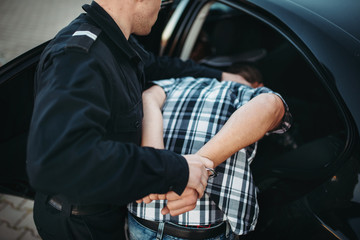Going through the justice system can be one of the most daunting events in someone’s life, with some of the most long-lasting consequences. 27 states have incorporated a minimum age for arrest, prosecution, and punishment within the juvenile justice process. However, despite recent legislative efforts, New Jersey is not among those states. Depending on the severity of the crime, children may even be tried as adults in New Jersey, which adds yet another level of unbelievable concern if your child is arrested or accused of a crime. Continue reading to learn what you can expect if your child is being prosecuted and how a Mercer County juvenile defense lawyer can help your family today.
How does New Jersey treat children in the justice system?
New Jersey’s juvenile justice system is structured around rehabilitation, not punishment. Your child’s case will be handled in the Family Division of Superior Court, and New Jersey requires that every child has an attorney at every critical stage of the process. The focus is on accountability, treatment, education, and support services that help youth move forward in healthier directions.
For less serious cases and first-time offenses, the court may divert the matter to a Juvenile Conference Committee (JCC) or another diversion program. A JCC is a panel of trained community volunteers who meet with the child and family, then make a recommendation to the court. These panels are used only for appropriate, lower-level matters. More serious cases are handled directly by a Family Court judge.
Courts look at the whole picture when deciding outcomes. Factors include the nature of the offense, any injury or property damage, the child’s age, prior history, school and family environment, and physical or psychological needs. Sentencing options can include community service, counseling or treatment programs, educational or employment programs, and probation. For the most serious offenses, placement in a juvenile facility is possible.
Juvenile sentences in New Jersey are capped at significantly lower terms than adult sentences. For example, the maximum commitment for a juvenile adjudicated of murder is 20 years, compared to life in the adult system. Other first-degree offenses carry a maximum of 4 years. Parole in juvenile cases operates under a rehabilitation model, and timelines are not governed by the adult No Early Release Act. The 85 percent requirement applies only if a juvenile is waived into adult criminal court and sentenced as an adult.
In rare and serious situations, a prosecutor can request that a case be waived to adult court. This is limited to youths who are at least 15 years old and charged with specific severe offenses, such as murder, aggravated sexual assault, or carjacking.
What should I do if my child is accused of committing a crime?
The length of jail time permitted for children represents a considerable part of a child’s life, should the Juvenile Conference Committee decide against them. If your family is navigating a difficult, stressful journey through the juvenile justice process in New Jersey, please give us a call. We’ll do everything in our power to guide you and your child.




